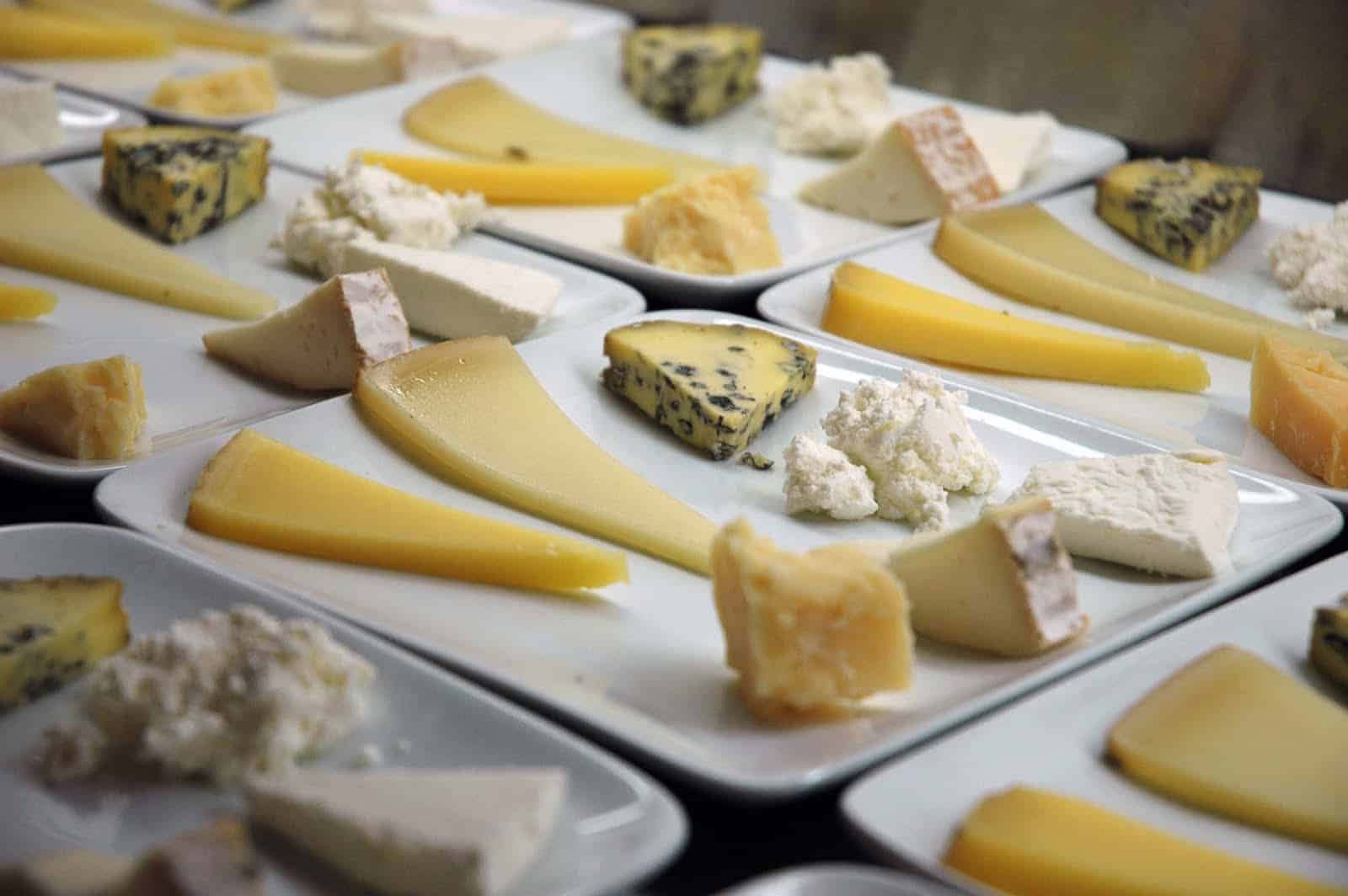I love cheese. My mom grew up in Wisconsin, the state known as “America’s Dairyland.” When I visited my grandparents during the summers of my childhood, we would snack on cheddar cheese curds, which were all the more fun because they squeaked with every chomp. I even owned an official Cheesehead cap of the Green Bay Packers, Wisconsin’s storied NFL franchise.
Many of my Chinese friends do not understand my adoration for cultured milk products. In all its culinary complexity, cheese remains an acquired taste, not one easily transplanted onto Chinese palates. Despite such logical explanations, I still fuss and whine over having to rely on boutique import stores for my cheese fix in China.
Nanjing suffers from a dearth of proper cheese selection. I can still recall my despair after thinning my wallet on disappointing Japanese imitation Camembert: “It’s shoddy Brie in fancier packaging!” Thankfully, Beijing has so far exceeded my expectations. Last week, I made my pilgrimage to the city’s central Carrefour, where throngs of expats flock to aisles of refrigerated imports. There, under the glow of more than just industrial fluorescent lighting, I found shelves packed with refrigerated European imports: “Oh my GOD they have halloumi!”
Perhaps derivative of the differences in cuisine, I cannot find a satisfying Mandarin translation for the word “cheesy,” as in something that copies a cliché or lacks authenticity. A talented bilingual friend suggested 肉麻, whose literal meaning describes the sensation of numbness after eating certain types of spicy food. But despite the tasty parallel, 肉麻 comes off as too strong – it might mean “disgusting” or “sickening,” whereas “cheesy” is a milder rebuke – more Havarti than Roquefort, if you will.
All translations fall short because the concept of “cheesy” does not exist in Chinese. In pop culture, over-the-top soap operas run every night during primetime, and few viewers seem to bat an eye at the characters’ absurd interactions. I’ve watched days’ worth of Chinese dating shows, and often the male contestants win over their female partners through some of the tackiest, cheesiest confessions of love in any language.
But could the cultural roots go deeper? Perhaps China lacks a certain aversion to clichés because of traditional notions of knowledge. To this day, Chinese people praise those who regularly employ the use of 成语, or four-word packets of wisdom, during everyday conversation. Many 成语 have roots in Chinese history and culture, and may require paragraphs to unpack effectively – think Shakespeare’s hardest-hitting lines. Yet we quote literature at nowhere near the rate that Chinese people recycle 成语 to bolster their point or prove their learnedness. Could this ancient reverence for well-known sayings somehow have contributed to a contemporary acceptance of what others find unimaginative and stale?
Hmm…stale…better not let those crackers I bought go stale. You know what goes great with crackers? CHEESE.
我爱起司. 我妈妈在又称美国的乳制品国度- 威斯康辛长大。当我小时候暑假拜访我外公外婆的时候, 我们会一起吃巧达起司,这很有趣因为每吃一口, 就会有唧唧的声响. 我甚至有威斯康辛的NFL商品- Green Bay Packers的起司帽子.
我很多的中国朋友不懂为什么我那么喜欢乳制品, 在所有复杂的烹饪当中, 起司有一种很特别的味道, 但不是很轻易地就能转换到中国的菜肴中. 虽然这是个很合理的解释, 我还是会抱怨每次要买起司的时候都要到进口店买.
南京很缺乏好的起司. 我还记得在买完日本仿制的法国卡门贝干酪之后, 我为我的消瘦的钱包感到绝望. “这只是假冒的法国布里白乳酪放在更好的包装中!”幸好, 北京超出我的预期. 上个礼拜, 我去了市中心的家乐福, 这边很多的外国人都赶来买冷藏的进口食物. 那里有的不只是工业的萤光灯, 我找到了一柜的欧洲进口产品. “我的天, 他们有halloumi!”
或许是不同文化有不同菜肴, 我找不到“cheesy”这个英文单字令人满意的中文解释, 这字只能用陈腔滥调或缺乏原始性来形容. 一个中英文很厉害的朋友告诉我可以翻“肉麻”,代表特定吃辣的食物时所感到的麻木感. 但是除了这个跟辣相关的的解释, 用肉麻来解释Cheesy这个字太强了- 肉麻可能有“恶心”或“令人作呕” 的意思. 但是“cheesy”只是一个轻微的批评. 就像是哈瓦蒂干酪而不是罗克福尔羊乳干酪. (Note from translator:Harvarti味道较弱)
这些解释都不对因为在中国 “cheesy” 这个概念不存在. 在流行文化中, 过度戏剧化的电视剧每晚演出, 而且很少人会对电视上荒唐的演出感到奇怪。 我看多好多的中国约会节目, 通常男生参赛者会用最老套肉麻的言语来获得女生的心.
但是文化是否可以更深呢?或许中国因为对知识这种东西依旧抱有传统思想, 所以缺乏对陈腔滥调的事物的反感. 一直到现在, 中国人会称赞哪些日常生活对话常用成语的人。很多成语来自中国历史和文化,而且可能需要好几个段落才能解释- 就像莎士比亚一样. 但是美国人用成语来加强自己观点或证明自己的知会的次数远不及中国人频繁。这种对成语的古老尊敬是否成为现代中国人接受别人看似没有想象力又变味的事物的原因之一呢?
恩… 变味… 最好不要让我买饼干变味了. 你知道什么跟饼干很搭吗?起司.


